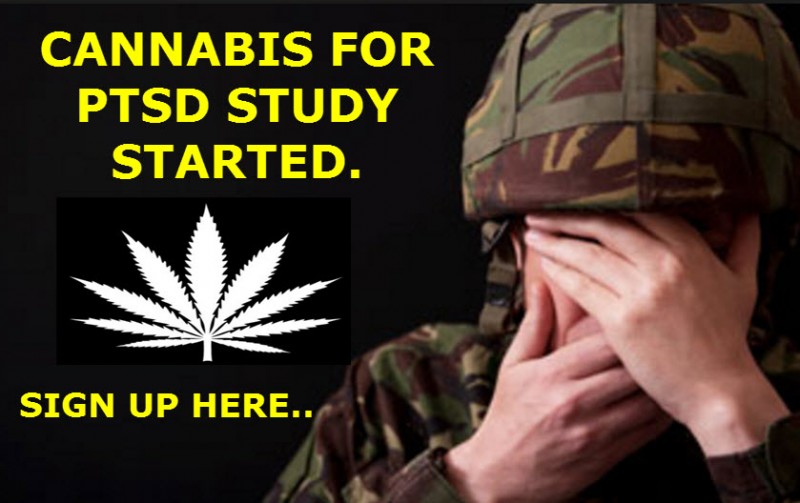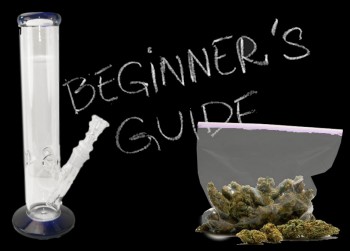Would You Like To Participate In An MMJ Study On Vets With PTSD?
Cannabis for PTSD Study Gets Started in Arizona from CannabisNet on Vimeo.
A new milestone in medical marijuana is made this week.
In Phoenix, Arizona, the first clinical trial studying the impact of smoked cannabis on vets with PTSD began.
The Multidisciplinary Association for Psychedelic Studies (MAPS) is a California-based non-profit leading the study. MAPS is carrying out the study thanks to a $2.16 million grant from the Colorado Department of Public Health and Environment. MAPS still needs more volunteers to participate in the study, which will go on for two years.
Based on a MAPS news release, the study will “evaluate the safety and efficacy of four different potencies of marijuana to manage symptoms of PTSD in 76 U.S. veterans.” Last Monday, the first participant used cannabis in a Phoenix clinic. The study’s principal investigator is no other than Marcel Bonn-Miller, executive director of the Institute for Research on Cannabinoids and who also works at the University of Pennsylvania’s Perelman School of Medicine.
Half the volunteers will participate in the Arizona study while the other half will be at the John Hopkins University in Baltimore. The end goal of the study would be to push for FDA approval of the cannabis plant to treat PTSD.

Big Step Forward
Getting the study off the ground wasn’t without obstacles. It took the team 7 years and several challenges along the way. Dr. Sue Sisley, who played a significant role in spearheading the project, was abruptly fired from her post at the University of Arizona. This happened because a conservative Republican lawmaker had issues about her support for medical marijuana.
Sisley has long been interested in the use of medical marijuana. During the early days of her career as a psychiatrist, she spent time working with veterans. Significant anecdotal evidence of the efficacy of MMJ in treating PTSD convinced her that it was a good treatment option. According to the US Department of Veteran affairs, 20% of Iraq war vets and 15% Vietnam war vets suffer from PTSD.
Sisley, together with a team of researchers from MAPS, developed a comprehensive 61-page scientific protocol which will function as a template for the study. Once this was completed they started the strenuous work on sourcing for funding and getting federal approval.
They also encountered challenges finding marijuana for use in the study. The federal government only considers one kind of pot to be legal: the plants that are grown at a 12-acre farm located at the National Center for Natural Products Research at the University of Mississippi. MAPS had to work on negotiations to get approval from the DEA as well as the US Health and Human Services.
The researchers also had to find the right location to carry out the study. Sisley proposed the University of Arizona since she has a part-time job at the school. Representatives from UA wanted to participate in the study, although they weren’t open to it if Sisley was still going to be involved, so this move cost her her job. An online petition to support Sisley was also started, and was signed by 110,000 vets.
Instead, MAPS stayed with Sisley and began making moves to find another location for the study. In 2015, Sisley founded a company called the Scottsdale Research Institute, which operates out of a rented warehouse. Last April, the DEA approved the study which helped pave the way for the Mississippi pot to be tested on vets.

The vets will tested using 4 different kinds of marijuana: a placebo of the plant that contains no THC, a strain with 6% THC, a strain with 12% THC, and a strain containing 6% CBD. Each day, volunteers will smoke 2 joints’ worth from pipes, then they will also be recorded on video as they self-administer the plant at home. Volunteers won’t be told about which kind of strain they will be getting, and this information won’t be made privy to the researchers initially.
The volunteers will need to make 17 clinic visits over the course of 12 weeks, a follow up after 6 months, and drug tests to determine how much THC is in the bloodstream of the participants.
Rigid Criteria

Now that the study is well underway, the team is encountering difficulties finding the right volunteers because of rigid criteria that is necessary for scientifically valid findings. Over 300 vets were disqualified since the researchers began looking for applicants earlier this year.
Interested applicants can get in touch through arizona@marijuanasites.org or call John Hopkins at (410) 550-0050.
OTHER STORIES YOU MAY ENJOY...
PTSD AND MEDICAL MARIJUANA TREATMENTS, CLICK HERE.








